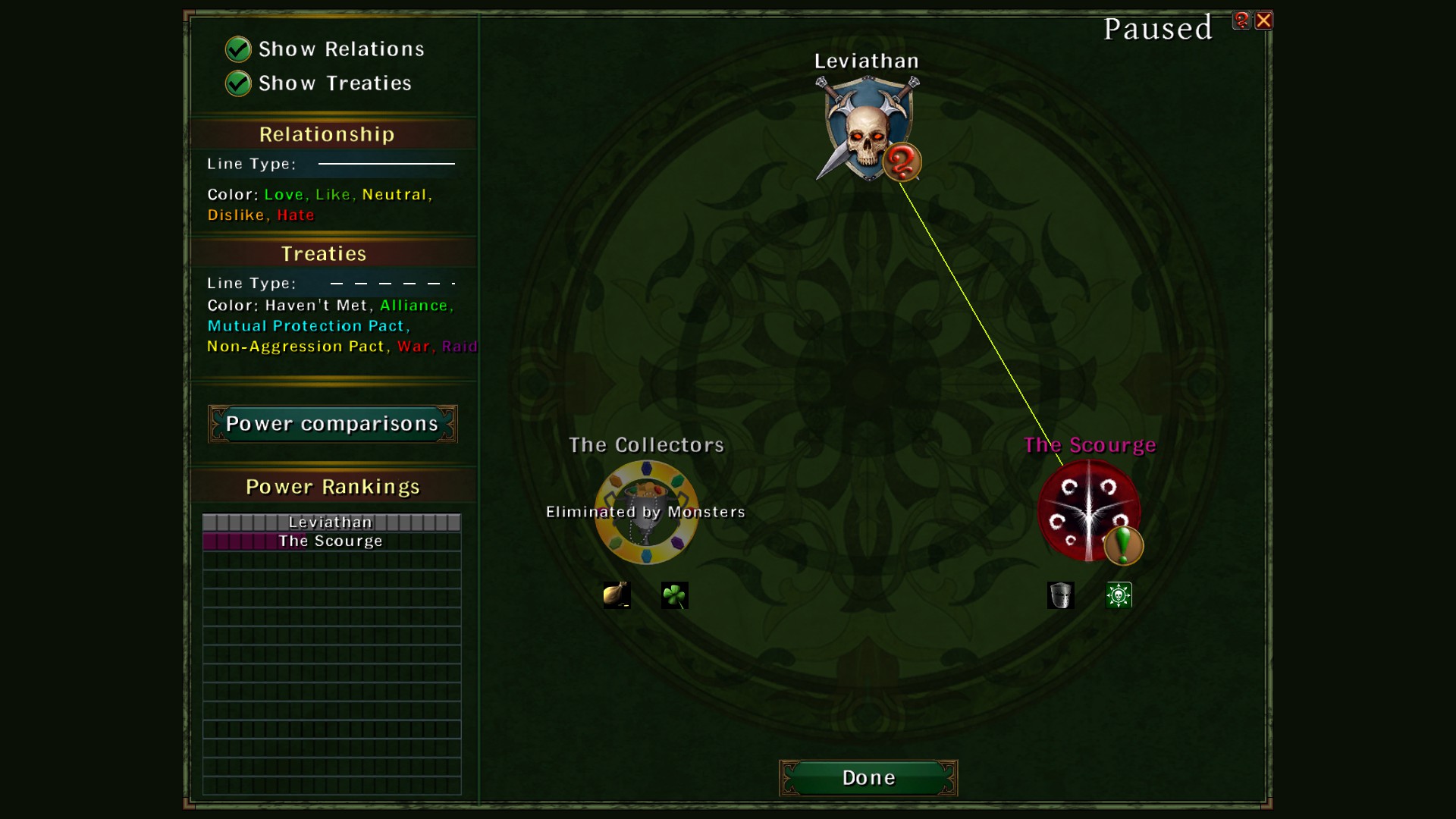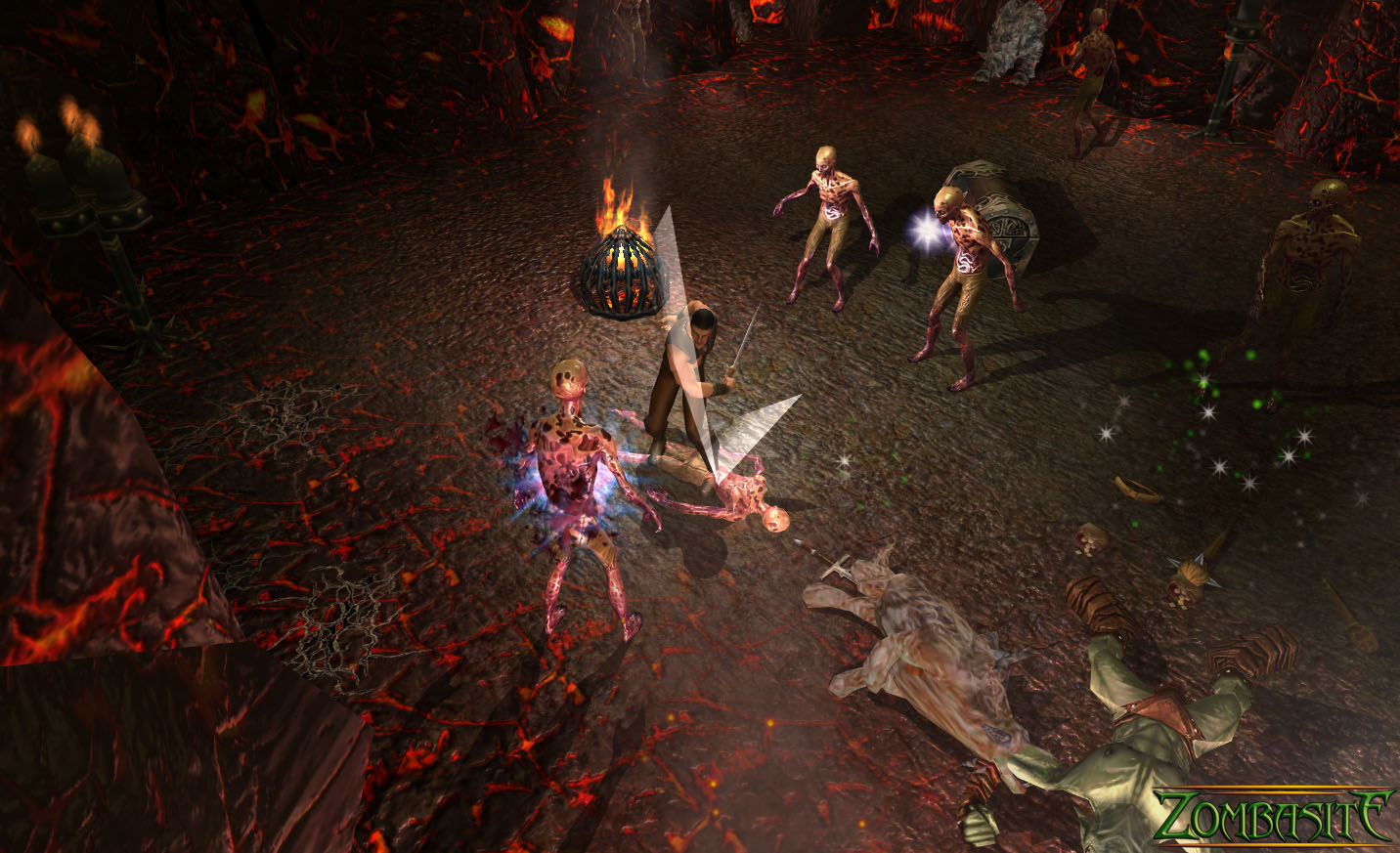
Co-Optimus: That sort of immersion and unpredictability you mentioned, to go behind the scenes a little, how do you make something like that work? What's the thought that goes into ensuring the world doesn't just default into a set number of patterns?
Steven: Basically all of our monsters, quests, clans, NPCs, and even the world itself don’t have a set script of what they are going to do next. They instead have several possibilities that they may or may not choose to do. Usually each of these choices leads to new possibilities. It ends up being a huge graph of what can happen and the player can greatly impact what happens based on what they do or don’t do. Here’s an example: the player is adventuring in the Black Forest trying to put down an uprising of orcs. He successfully destroys the uprising, but the orcs declare war on his clan in retaliation for killing so many of them.
During this war, the orcs decide to send invaders to attack the player’s town. While attacking the town, the attackers infect his clan with Rage, a type of plague that makes its victims more violent and more likely to go insane. Damek and Powell are both infected and get into a fight that goes too far and Damek kills Powell. Powell’s wife Callista take it really hard, leaves the clan, and goes renegade. Now the player has a war, a town attack, a plague, and a renegade to deal with and each of those can still cause more issues. This is just one of countless string of events that can happen, but each time it will be different because the player will interrupt the chain (like quelling the town attack quickly), the monsters will choose to do something different (like poison the water supply instead of starting a plague), the player has built a powerful clan that can handle attacks or deaths, or any number of other things changes the outcome.
There are some patterns that can be learned and thus you get better at dealing with surprises. For example, it is possible that the NPC you tracked down to rescue is a trap. Knowing this is possible makes it easier to handle when it does happen, but you don’t know when it will happen because most NPCs that need rescuing are exactly what they seem.
If we notice any patterns (directly or through feedback) that make things too predicable though, we will just change the chances or add new possibilities. In general, things don’t get too predictable because there are just so many possibilities that can happen.
Co-Optimus: What's been the toughest feature to "get right" so far?
Steven: Accessibility. It is always a battle to make deep gameplay, but at the same time be easy for new players to understand everything that is going on.

Co-Optimus: So what are you doing this time around to assist with that? I saw the tooltips that pop-up as you play, which do help explain certain features, but also lack a certain degree of context. For example, why would you want to take NPCs into your party vs leaving them back at the base. Will there be any kind of introduction/tutorial map that walks players through some of the clan-building ideas/concepts, or videos that demonstrate that?
Steven: I’m going to at least streamline some of the current help topics and add a few more to help out new players a bit more. I might add some tutorial type of quests for level 1 characters. We’ve done this in previous games and it seems to have worked fairly well.
I’m also planning on creating some videos for marketing and tutorial purposes, but we’ll see how that goes.
Co-Optimus: This is your first game on the Steam Early Access program. How has that been working out so far? Are you finding that you're getting more feedback?
Steven: I think it has been working out really well. Having more of the players on the latest version makes my life a little easier. I don’t think we’ve been getting any more feedback than usual. That’s not related to Steam’s Early Access though, but probably more from less press coverage or way more games coming out.
Co-Optimus: What's been the most common piece of feedback you've received thus far? Does it seem like players are liking all of the features and depth?
Steven: It’s hard to say actually. We’ve had a ton of feedback on lots of things, we improve those things, and everyone moves on to the next thing. A good example might be the hunting and foraging parties. At the beginning of Early Access they were limited to one per hour and lots of people didn’t like the arbitrary restriction. We changed it so that you now have Expedition Points. You accrue these points over time and each expedition uses some of them up, so it works similar to how it originally did. However, you can now send out as many expeditions as you want, but if your Expedition Points gets below zero your NPCs get more and more unhappy about it. So thanks to feedback, we now have a system that is less arbitrary and the player actually has more options available to them.
As is common with our games, once players start understanding that the world doesn’t wait for them and that their actions actually have consequences, I think they really start liking the depth of our games.
Co-Optimus: Aside from your own games, and obviously spending time developing/playtesting Zombasite, are there any other co-op games you've been enjoying lately?
Steven: Although I haven’t been playing it co-op, I have been playing a lot of Grim Dawn recently. From a co-op perspective, my wife and I have been playing more board games lately like Neanderthal, Tiny Epic Defenders, Shadowrun: Crossfire, and Flash Point.
We'd like to once again thank Steven for taking the time to speak with us about Zombasite. You can check out our preview of the game on the site, and head over to Steam to pick up the title.